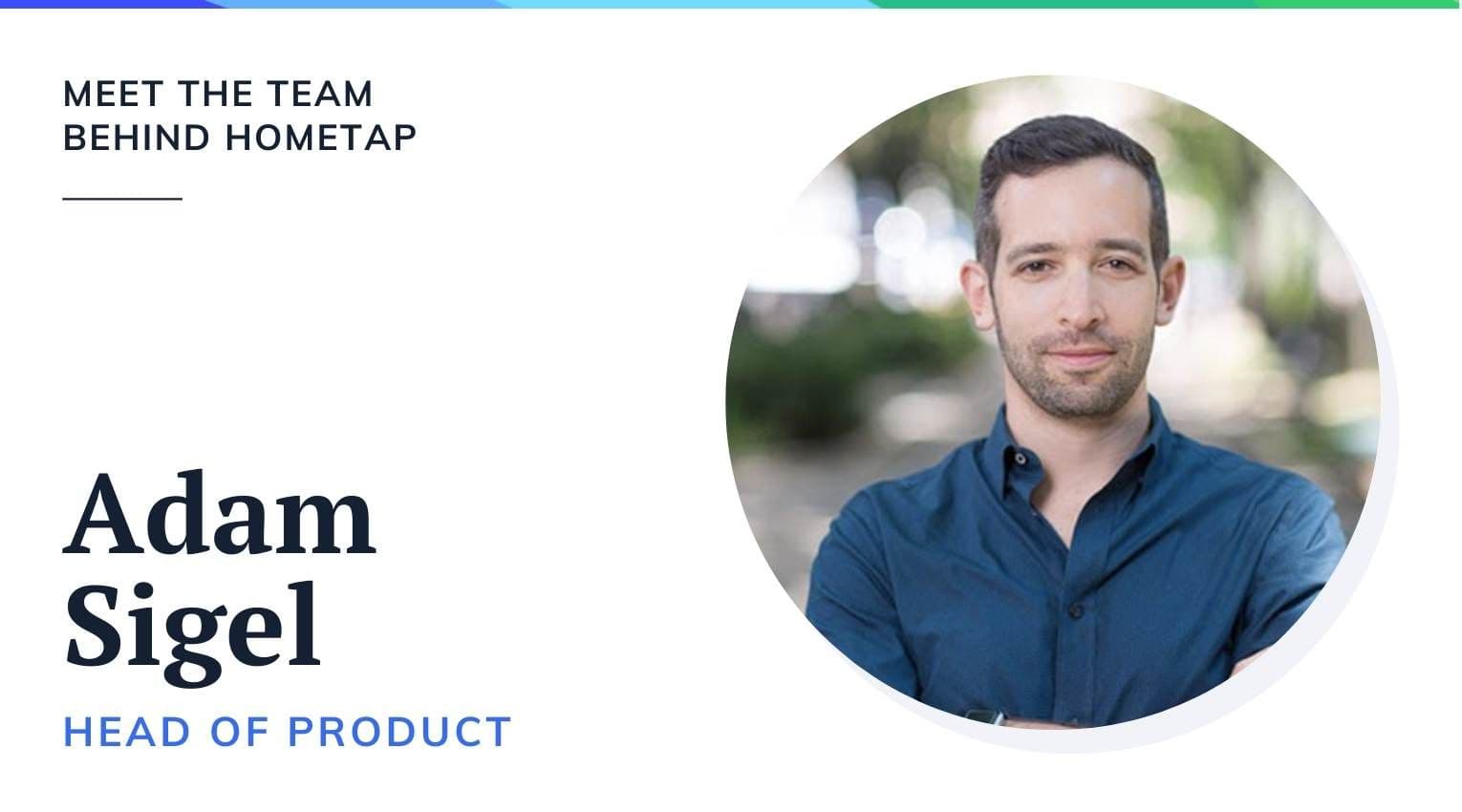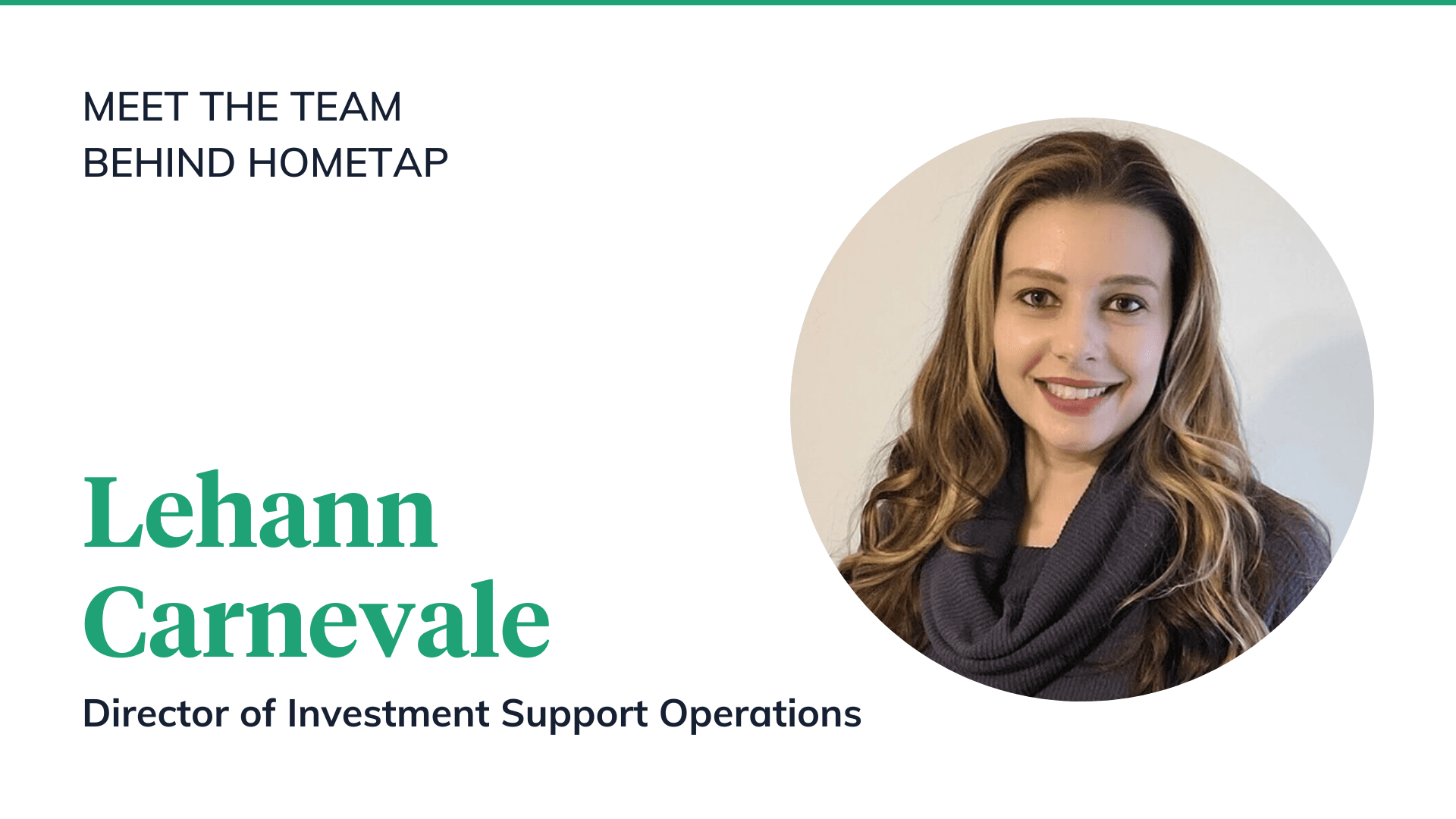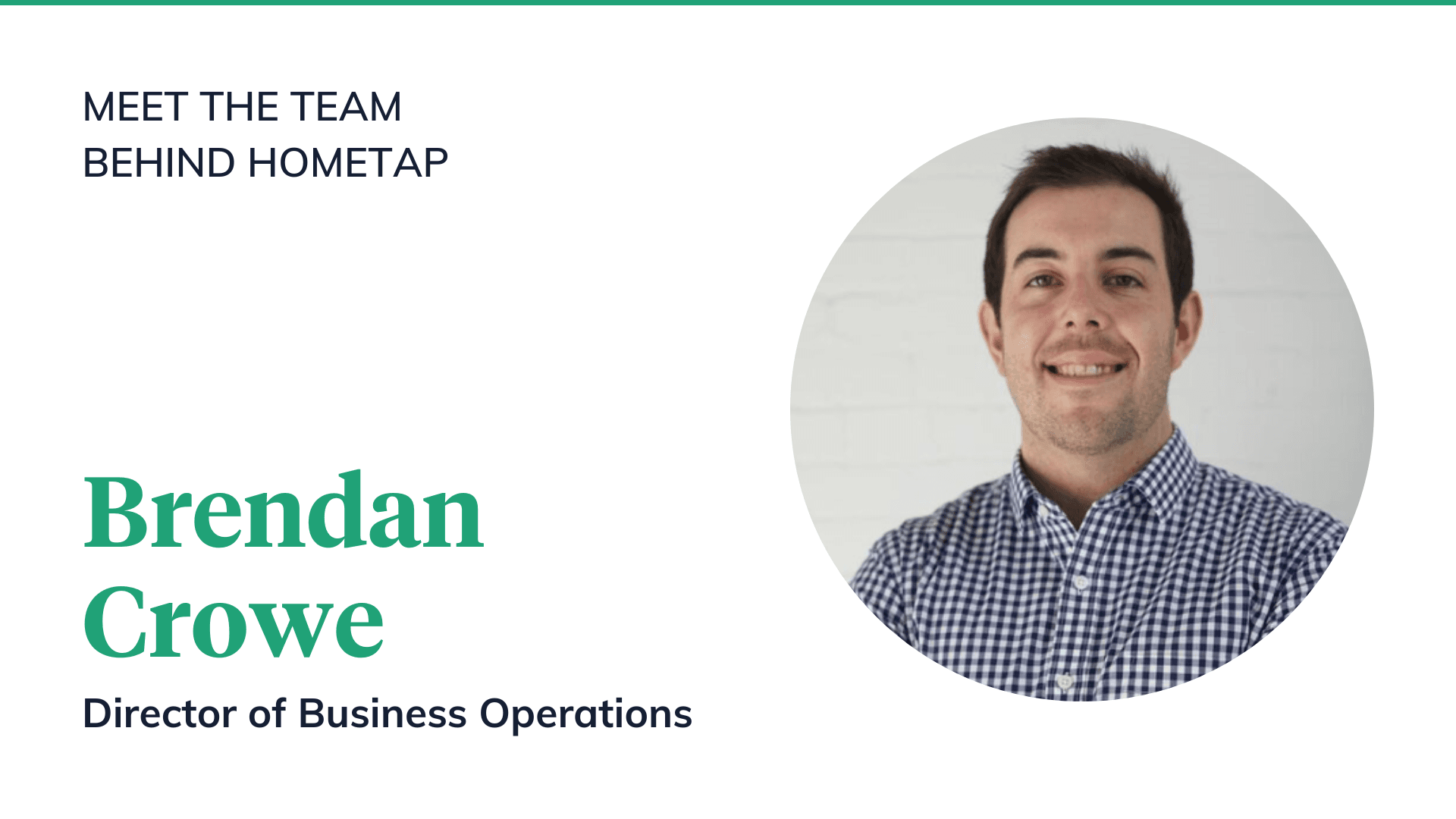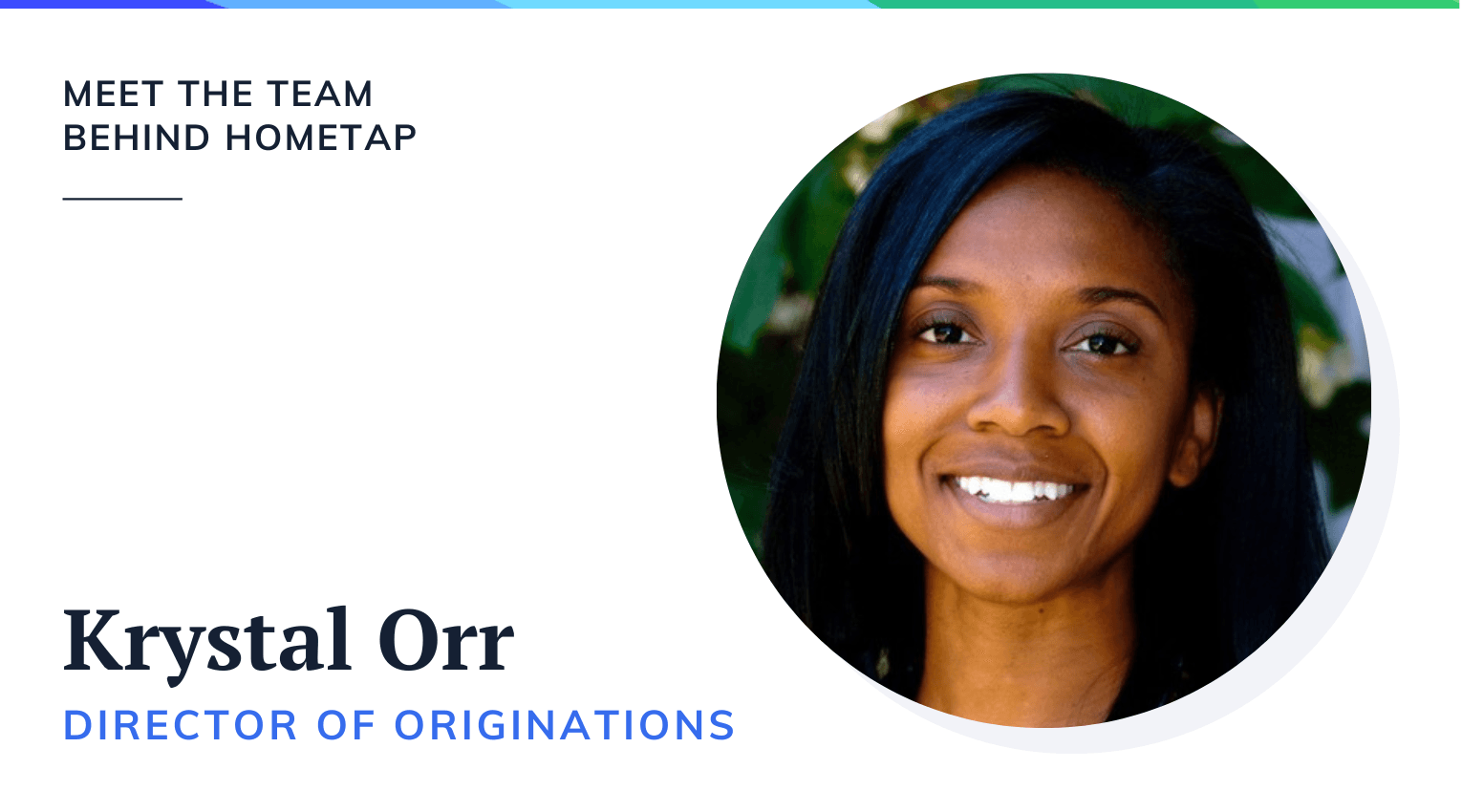15 Questions with Hometap’s Head of Product

As the head of product, Adam Sigel is responsible for the end-to-end experience of our homeowners. This includes the investment estimate process, the application process, signing on the investment, and invested homeowners’ experience accessing their financial documents throughout the lifetime of the investment.

Q1: At what point in your career did you shift toward Product and why?
A: After six years in management consulting, I decided to make a change for a couple reasons: Like a lot of consultants who get burnt out, I was getting tired of making recommendations in slide decks. I love solving problems systematically as opposed to client by client. Five years in, I created some very basic software to let all the teams in our department create these client-facing fact sheets we used to make in Excel, and in doing so took the prep time from 30 minutes to five, which saved the company a lot of money. I thought, “This is the most satisfying work I’ve ever done at this job.”
Q2: You’ve served as product manager for a lot of different companies (and as such, a lot of different products). What are some of the key differences in your role at a start-up vs. a well-established company? And for a fintech product vs. other products?
A: I’m grateful for the round trip of Boston tech I got to experience before landing at Hometap because I’ve had the opportunity to see businesses at all stages, from pre-market fit to heavy growth to maturity, as well as teams of all sizes. Those experiences helped me build my mental playbook of what a high-functioning product team should look like.
The adjustment I had to make when moving to a fintech company was significant; at Hometap, we currently have a high-consideration, low-volume funnel, which makes A/B testing too expensive to consider. That means the product team has to do all of its testing before we put something into production.
Q3: How do you define and measure the success of a product?
A: As the saying goes, “You can’t manage what you can’t measure,” so when we’re coming up with something new, the second thing we have to answer after, “Why build it?” is, “How will we measure the impact it has?” We look at strategic KPIs, like sales cycle, and team efficiency, as well as tactical things like button clicks and pageviews.
You need to balance outputs and outcomes; what you’re delivering has a real impact on the company.
Q4: What’s the biggest challenge you face as head of product?
A: I spend a huge amount of my time thinking about feedback loops; it’s ultimately what helps us outperform our competitors. The ability to get good data, whether by talking to homeowners or through internal communication, and turn that data into decisions we act on, is how we stay ahead. Those feedback loops take lots of different forms. For example, the product team has local development environments on our machines so that we can test our engineers’ work earlier in the process. If we waited until a feature was on staging, the cost of being wrong goes up, and it creates more work for our engineers to make changes. Product’s goal is to find out how we’re wrong as quickly and as cheaply as possible.
Q5: How has your experience as a General Assembly instructor influenced your managerial skills?
A: I’d been doing product for four years before I became an instructor, so it forced me to crystallize how I think product should be done. It also helped me learn what other people think product management is; we do a job not a lot of people fully understand, and it’s done differently from company to company.
Q6: What project management framework (if any) do you adhere to and why?
A: We use scrum; I like the principles of continuous iteration and self-assessment. It’s nice to have the opportunity to ask the team every two weeks, are we working on the right thing and are we delivering visible progress on that thing? Any size project can be broken down into small, achievable deliverables, and scrum helps facilitate that.
Q7: What is Boston Product, and how did it come about?
A: To be honest, It started as a completely selfish endeavor, but has evolved into a mission to benefit the city. I was in my first product management role, and I felt like I was in over my head. A friend suggested getting 20 PMs from around town together to discuss the challenges we face in product. It’s so helpful to hear how other product managers with different backgrounds approach the same problems you have. We joke that it’s like group therapy. That breakfast proved to be so useful that we did it again the next month, and here we are going into year six of Boston Product with over 1,000 members, an active Slack space, a monthly newsletter, an annual conference with about 200 attendees, and several recurring events like the monthly breakfast and game night. Boston has this incredible mix of companies working in different industries on various types of products, all densely packed into a small region. Today, our mission is to help the city thrive through leadership in product management. We do that by helping local talent gain mastery, showcase their work, and connect with hiring companies.
Interested Boston-area product teams can learn more at bosproduct.com
Q8: How do you stay apprised of the most current practices within product? What are you reading? Watching? Listening to? Following?
A: Boston Product fills that void for me, for the most part. I’m able to bounce an idea or an issue off of 6-7 other people in a timely way and get relevant feedback. I also use Twitter, following other product managers I respect, but there’s no better way to learn than through experience.

At Hometap
Q9: What are the qualities you’re looking for when recruiting members of your product team?
A: PMs at Hometap are generalists. They need to bring a lot of skills to the table in order to appropriately manage their portion of the roadmap. The primary things I look for in PMs are strong communication skills, high empathy/emotional intelligence, and a big dose of intellectual curiosity. Beyond that, I want to understand how someone balances analytical and creative thinking, applies various user research methodologies, and wields influence to get decisions made.
Q10: Do you have a go-to interview question (when interviewing any role)? What is it?
A: I’m a big fan of behavioral interview questions—things that start with the phrase “tell me about a time when…” Those specific examples help me understand what role candidates have played in certain scenarios. I also learn a lot whenever I ask my first question, “Why Hometap?” It tells me how much thought a candidate puts into their career and how much preparation they did before our meeting.
Q11: What was it that appealed to you about Hometap as a business?
A: I am a fan of companies that seek profit from purpose, and I believe strongly in our mission to make homeownership less stressful and more accessible. I was lucky enough to become a homeowner in my 20s, so I understand both the financial opportunity afforded by homeownership, as well as the stress. As the Head of Product, I actually love that we don’t sell software, because it naturally aligns our KPIs with the business. We don’t have to dream up new features or leverage dark UX patterns to keep people engaged. We’re 100% focused on providing a simple, reliable experience that rewards homeowners and Hometap alike. Our KPIs are things like sales cycle time, unit margins, and customer happiness.
Q12: If you could trade jobs with anyone else at Hometap for a week, what position would it be?
A: I’d want to trade places with our Head of Sales. It’s an easy choice, not because I like or am good at sales, but because it lets me speak with more homeowners, and I’d get a better sense for what kinds of operational challenges he has scaling our fastest growing team. Those are both great fodder for me as I consider what belongs on the roadmap and where. Does this mean he’s also going to do my job for a week? If so, I am sorry, Dan.
Q13: What’s one quality someone needs to be successful at Hometap?
A: You need to be self-motivated. We’re still a small company, and there’s no micromanagement happening. The most successful people at Hometap don’t just satisfy their job descriptions, they anticipate what’s needed next, or they see where their neighbors need help, and take that responsibility on proactively. They also know how to order Sweetgreen pickup properly.
Office Culture
Q14: What qualities do you look for in a company’s office culture?
A: Going back to those feedback loops again, some of that is accomplished through process, and culture picks up where process leaves off. So I like to operate in a culture that promotes psychological safety. I value honest, constructive dialog, mutual respect, and inclusivity. We want our learning to happen early and often, and that requires having space for people to experiment, suggest new ideas, disagree on issues, and change their minds.
Q15: What has been your best contribution to the Happiness Team (Hometap’s equivalent of the party planning committee – a rotating team of employees responsible for office snacks and social outings)?
A: Other than all the Party Parrots I’ve added to Slack? I enjoy my role as Hometap’s unofficial game show host. The game we’ve played at the last two holiday parties, The Appraisal is Right, was a hit both times, and I’m looking forward to hosting trivia night in the next couple weeks. Events like those are best when you put in a little extra effort to up the production value, calibrate the questions for the audience, and add fun details like theme music. I love creating experiences for people that are valuable, enjoyable, and entertaining, and I have a gift for logistics. It’s why I love doing Unbox for Boston Product, it’s why I’ve thrown awards shows for friends, and it’s why I redesigned the Haggadah our family uses for Passover seder. Whatever I’m doing, I’m looking for ways to inform and delight.
Tap into your equity with no monthly payments. See if you prequalify for a Hometap investment in less than 30 seconds.
Related Tags:
Employee spotlightMore in “Hometap Happenings”

10 Questions with Hometap's Director of Investment Support Operations

10 Questions with Hometap's Director of Business Operations

